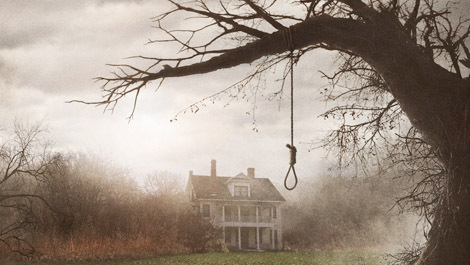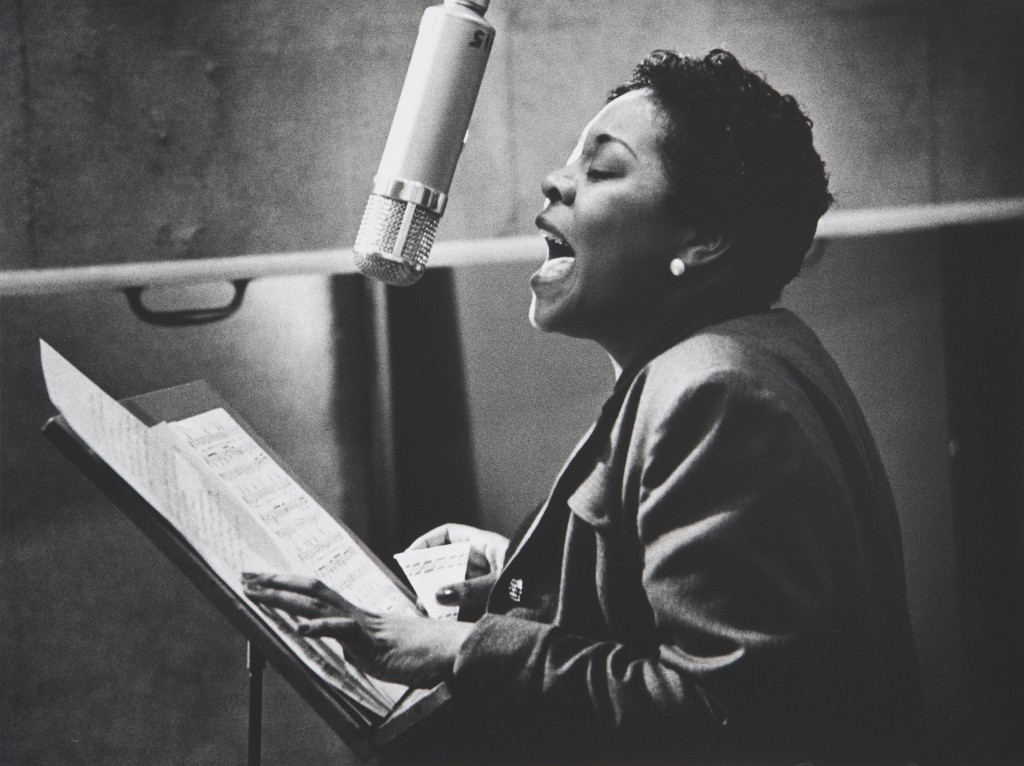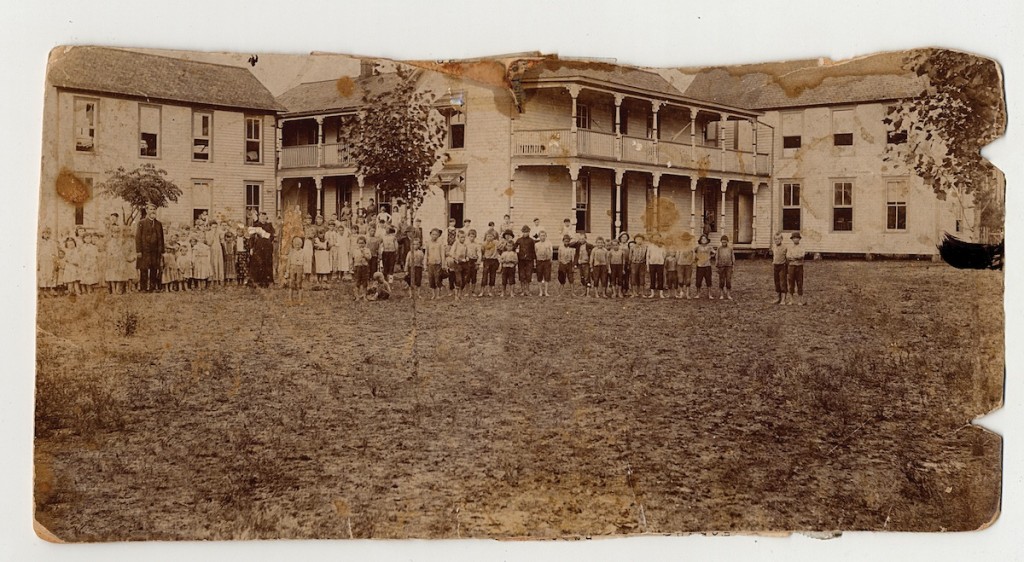May 27, 2016 | Blog - Mary Marcus
One Memorial Day years ago, my very young son and I were standing on a street corner on the Upper West Side. It was cool for the end of May. I think I was wearing a sweater. Broadway was closed and men in uniform carrying flags were marching down the street.
One of those uniformed men was a friend of ours from the neighborhood. He called out to my son, and just like that, carried him off on his shoulders with a band of brothers who were Green Berets in Viet Nam. One minute he was standing next to me, the next he was waving his little downy six year old arm in the air, brandishing an American flag.

Later when I collected him at the War Memorial on Riverside Drive, I asked him about the experience. He told me about an old geezer who kept warning him, “Don’t let the flag touch the ground, son.” The flag was heavy and my son was worried he would drop it.
I think I might have explained to him what it means when a flag touches the ground.
My son had that flag for a long time. First it was crammed into one of the slats of his headboard, his proudest possession. Then it hung from the wall. Then, it was in his closet. It was still somewhere around when I cleaned out his room after he left home and we moved house.
Last summer, I thought about the flag and those vets marching down the street when my son had an American flag pinned on his lapel. I wondered in a fanciful way if those vets had done a number on his malleable mind way back then? When he was a senior in college, for a while, he was threatening to enlist. I dare say, he didn’t learn about that brand of chauvinism at home. Other forms, but not that one.
Though what does anyone learn at home? That one is, or isn’t, worthy of love? Is, or isn’t, worthy of attention? Admiration? That one has the right to speak up? To protest? To wear an American flag in the lapel? To be strong enough to face the people who love one first and say they love one best and declare: “I’ll grow up and become a Republican and wear a flag in my lapel and there’s nothing you can do about it! So there!”
Myself, this Memorial Day, I’m planning on re-reading People Peace and Power, written by my friend from Bath, England, the brilliant Diana Francis. Diana, a life long pacifist, is an international figure in conflict resolution. She has gone to jail for her beliefs. I was in jail once briefly so I can say with conviction, I will do almost anything not to repeat that experience. I doubt whether any of my stridently liberal friends who have never been to jail would either.
But you never know.
To quote Diana:
“One of the influences which discourages most people, most of the time from taking any form of social or political action is the culture of domination, which, while it glorifies violence, incorporates the assumption that it is the task of some to rule and others to be ruled.”
Diana also believes:
“The culture that produces militarism and military machines, so often used in ‘defense of democracy’ also produces passive populations who do not participate in their own rule even when the legal space exists for them to do so.”
My son the former republican candidate (who I must declare isn’t in favor of Trump) does believe, however strong countries need strong armies.
My friend, Diana, would say, strong countries need strong citizens who speak up. And strong conflict resolution.
I fear I am one of Diana’s faceless people who for many reasons, doesn’t participate in her own rule.
And, of course, I’m wondering how I can change myself and others before this crucial flag-waving thing coming up in November.
In the meantime, I highly recommend Diana Francis’s three P’s. People Peace and Power available at the usual place and though not a beach book, time well spent on the beach or anywhere else you read it.


 by
by 
May 10, 2016 | Blog - Mary Marcus
When I was eleven, we lived in a great big un-paid for house with a mansard roof, and several empty rooms because there was no money for furniture. Our house was in the new part of Shreveport that was to us, countrified, coming as we did from a track house with an ornamental screen door and two young pine trees in front. Our new backyard was full of old trees and new trees and was nearly an acre. At night in the winter, we could hear foxes.

At the end of the block was a branch of Bayou Pierre, and it was there, one morning in the summer, I went looking for dewberries so we could have cobbler that evening. Aline had been with us by then for more than a year, and though my mother cried all the time, she wasn’t my father, and we laughed at the dinner table. We were broke, of course, and told not to answer the front door in case it was the bill collector, but I was no longer afraid. My father was dead. My mother was at his store trying to make a living. It was my sister, my brother and I under the gentle reign of Aline, who could handle us. Two previous housekeepers, Henrietta notably, had run away screaming waving her hands in the air.
Land around the bayou was dense and the dewberry vines had prickles on them. I had discovered a big clump of them; enough to fill a huge tin can full, and was sedulously picking and eating and biting out prickles from my fingers, when I heard a noise in the bushes.
I was afraid of snakes. I was afraid of foxes. I was afraid of my father coming back from the dead to get me—I was terrified of that. But I wasn’t afraid of black men. And that’s what the noise in the bushes was. A black man. Maybe he was drunk. Maybe he was pissed off. Maybe he was just nuts. (Who could blame him?)
I was almost shoulder high in the marsh and berries, but he was waist high. And his pants were unbuttoned. And his arms were out and he was coming to get me. I dropped the can and ran out of that rich patch of berries I’d found on Bayou Pierre, up the tar road and into the kitchen. I was plenty scared by the time I reached Aline’s warm arms. I was probably shaking like a leaf.
Aline wanted to know what happened.
I told her a man had chased me.
“Yes,” she said. “What happened? Did he get you?”
“No,” I told her. “I ran.”
“That’s good,” she said. And she looked me up and down. And she sighed. I could tell she was relieved.
She looked me in the face. “You sure about that?”
“Yes,” I said.
Once again she looked me up and down. “What’d he look like? Was he black?”
Something in her look and in her voice told me what to say.
“White,” I told her. “He was white.”
“You sure about that?”
“Yes.”
“So, do you want to call your mama?”
“No,” I said.
We made some jello for dessert that night, and I stayed away from the dewberry patches for a while. And to this day, no crazy black man has ever menaced or scared me again.
I thought of that long ago summer this morning, when I read the Op Ed pages of the New York Times. “Louisiana’s Color-Coded Death Penalty.”
“In Louisiana of today, a black man is 30 times as likely to be sentenced to death for killing a white woman as for killing a black man. Regardless of the offender’s race, death sentences are six times as likely—and executions 14 times as likely—when the victim is white rather than black.”
Louisiana has the worst record in the country. It’s right up there with repressive regimes in the second and third worlds.
Back then, I knew, if not the statistics, certainly what would have happened if I told Aline that a black man had chased me with his pants down. And she had called my mother. It would have meant, five, six maybe a whole dozen black men would be captured and probably lynched.
How can it be possible that all these years later, on some level this system is still operating in the land of the free and the brave?
In Louisiana 2016. In Ferguson 2015. The list goes on and on and on.
What are we to do about it?


 by
by 
Apr 29, 2016 | Blog - Mary Marcus
Although girls are more often molested than boys, boys do worse after being molested than girls do. Not that girls are unaffected, not that molestation doesn’t deform a girl’s view of the world. But for boys, the damage appears more severe. And the long term is ugly: As many of us saw in the Academy Award Winning Movie, Spotlight, boys who grow up without coming to terms with their childhood abuse often struggle as men with addictions, anxiety, depression, and thoughts of suicide as well as the inability to develop or maintain relationships.

Does that mean women are able to take such goings on in our stride? No I don’t think so. But women are taught to submit from an early age, almost from the get-go. Molestation– the most extreme form of submission– is in a horrible way, just a lot more of the same old, same old. But for boys, who have been taught to be tough, to admit such goings on is utter shame and degradation. Real guys don’t get molested. Or something like that.
And that’s why I take my hat off to Judge Thomas Durkin who yesterday sentenced former House Speaker, Dennis Hastert, once one of the most powerful men in congress, to a mandatory jail sentence in connection with his financial misconduct. The statue of limitations had run out for sexual misconduct (a terrible thing in my opinion, sex crimes are like war crimes). However, good Judge Durkin, despite the protestations from the likes of Tom Delay (another sterling character) socked it to him for the financial misdeeds. And while we are on the subject, how did a humble Congressman from Illinois manage to come up with the 3.5 million (the sum of the payout and a lot of ziti) and more? The answer is simple: after leaving congress, Hastert became a lobbyist.
In the newspapers today, a pitiful looking Mr. Hastert sat in his wheelchair, with a sad sack expression on his face, one meant, obviously to illicit pity. Alongside him, was his wife. I wonder about her, as I wonder about Mrs. Cosby. What’s it like being married to and sharing a life with such a creep-o?
According to a politico I know in New York, Hastert even had a lounge chair set up in the locker room for his comfort. Or maybe just to rest between licentious acts. Molesting while wrestling is obviously very strenuous indeed. One can’t help but make the comparison to the late, lamentable, Jerry Sandusky. Locker rooms, cub scout dens, altar rooms, all are havens for these men who abuse boys.
If I ruled the world, I would send all child molesters (except for Humbert Humbert) to their own special little island where they’d never see the children who turned them on, but only ugly old farts like themselves.
Thank you Judge Thomas Durkin who concluded:
“This is a horrible case—a horrible set of circumstances, horrible for the defendant, horrible for the victims, horrible for our country. I hope to never see a case like this again. Court adjourned.”


 by
by 
Apr 21, 2016 | Blog - Mary Marcus
I’ve been out of my mind for days. Or should I say in my mind. Nuts. Crazed. In shrink lingo: Harsh interjects. In my lingo: Up the wazoo. Everybody hates me. I look in the mirror: Horror show. The lamentable list goes on and on. To make matters worse: Outside, the Santa Ana’s seem to be raging just for me and my foul self-loathing state of mind. The air smells like fire. The other night when I woke up I thought drones were hovering over our house: That’s how the wind buzzed and whistled. Branches are down all over town. Red lights are broken. For gentle readers who do not live in California, there’s nothing quite like the winds that blow in from the East. The ones, I’m sorry to say happen way more often than they used to. It’s always Santa Ana season now. I wonder what Raymond Chandler would have to say on the subject.

But this has been worse than the usual Santa Ana disturbance. My writing often mildly sucks. This past week, it really sucks. I hate every single word I’ve written. Not much to hate because I’ve erased more than I’ve typed. Everything is forced. I’m too disturbed to cook. I’ve been living on take out and kombucha. My husband is no help whatsoever. He’s off on one of those pilot benders. Truly, there’s nothing worse than pilots for film editors and their families. He surfaced briefly yesterday and had suitcases—not bags—underneath his eyes. Henry was glad to see him. He yipped and leaped and brought him the rope to play tug-y. Henry’s easy. Me, I’m always pissed off at him when he goes off on these benders. It’s like being married to an alchy, but because money and networks not booze and bars are involved, everybody is supposed to say it’s ok. It’s just the way it is. It’s the biz. It comes with the territory. And it’s work.
What makes matters worse is I know I have no cause to complain because as Kafka said, “So long as you have food in your mouth you have solved all questions for the time being.” Indeed, thanks to pilot season and all its discontents, the wolf is not at the door. There’s even a.c. if the air is too fiery.
Why is it that blessings are in a way as hard–if not harder to bear—than true misfortune? When the vrai shit hits the fan some of us feel it is what we deserve and even if we didn’t, we knew it was coming. Certainly Kafka did.
Be careful what you kvetch about. Be careful what you say is awful because the powers who control awful-ness could suddenly remind you of how lucky you’ve been. And how truly horrific things could really be. I know that. I know that all too well.
Two people I love are ill. I’m not ill, no one in my immediate family and circle is ill. That in itself is something to rejoice. To raise the wineglass, to say as Jews are meant to this Friday night, dayenu. It would have been enough.
But I’m not having Passover this year as I usually do, because in a race between the pilot and the Passover dinner, the pilot is going to win.
And anyway, now, suddenly it’s over. The small merde is not hitting the fan; I’m no longer out of control and crazy. This morning I woke up and felt just fine… for no reason at all. It’s still hot as hell outside. The air is still full of fire. But that doesn’t seem to be so freaking central. After I walked Henry, I sat down at my computer and opened up the novel I’ve been working on and my main character who had not sung to me, not once in all these months, began to sing so to speak. I could hear him. I could actually hear his words and could read his mind. He seemed familiar. It wasn’t forced. Whatever he was doing felt just fine and what he would be doing. Dayenu.
When this happens in a yoga practice you call it flow. When it happens in a writing practice it’s also called flow.
What a difference a day makes. Twenty-four little hours.
In honor of that, I watched the great Dinah Washington perform the song. Gotta say, I adore Utube. I watched it once, twice, three times! Since then, I’ve been singing it all day. And I hope I’ll be singing it tomorrow. Remember, no matter how bad it is, things could always get worse. Or they could get better too…


 by
by 
Apr 8, 2016 | Blog - Mary Marcus
In a heart-wrenching article today in the Science Times section of the New York Times, Lisa Reswick writes about her banished brother, born with Down Syndrome and sent away by her physician father to become a ward of the state.
She and her siblings grew up knowing about the existence of her brother Jimmy, but no one was allowed to visit him. No one was allowed to speak of him. The author only met her brother at the end of his life, at his deathbed and then at his funeral.

It’s hard to think about the world advancing so much in empathy with the current likes of Trump, Cruz, and the extreme version of them: ISIS. Or just today, the state of Mississippi affirming business owners the right to discriminate against gay people based on religion. We do however live in more enlightened times in terms of our feelings about individuals with special needs like Down Syndrome, Autism Spectrum to name but two. Not even the Donald would risk diss-ing a Down Syndrome person. At least I hope not.
But back in the Dark Ages of my childhood it was a different story.
The author of the article in the New York Times was haunted throughout life by the notion of a brother she did not know. A brother who was different than she was. A brother who did not belong and therefore a brother who was sent away. And of course the hidden message in all this is: if I can send him away, I can send you away. Better behave!
Though I have always had all my marbles (relatively) and my IQ is adequate, I too faced expulsion by my father to an institution: an orphanage.
Though I was never actually banished there, (could I have blocked it out like so many other things?). Nevertheless, some small persistent part of me still lives there in that orphanage to this day. To paraphrase Ferlinghetti, “The Buckner Orphanage of the Mind.”
I was born prematurely after my mother’s tubes were meant to be tied fourteen months after the birth of my brother, the longed for boy. And according to one account, an abortion attempt. I was in an incubator for a long time. I guess I was one of those miracle babies you read about on the front page of The National Enquirer: “Can’t Kill Her Now She Won’t Shut Up!”
But I was no miraculous thing, not to my own father who in a playful mood as he often was, told me I came from Buckner’s Orphanage in Dallas, Texas where we lived until I was five. And that’s where I would be going if he had anything to say about the matter. “I’ll know the reason why!” is one of his charming expressions that to this day, resides within me invoking terror when I think of it. And in fact, there was even, a car trip of some few miles to view the outside of the orphanage where presumably my place was secured. It was a large establishment with lots of out buildings. My adult mind would label it Dickensian, and indeed, the building and the institution date back to the Nineteenth Century. I just checked. Everything is on line, every childhood terror has a website! Buckner Orphanage lives on.
My overweight father literally exploded when I was very young, following some Luau where he ate too much suckling pig. I know, it sounds almost like a joke by Nabokov. But it’s true. One day he was there, shouting and reviling and the next day he was dead meat with an apple in his mouth. He was very very young to die, but there was nothing to be done for him. After he was gone, there were no more threats of sending me to Buckner Orphanage. And of course no possibility of changing the way it was between us. Could I have one day made him like me? I’ll never know.
To this day, pitiful though it is, I can truthfully say, I missed out by not being a Daddy’s Girl. Someone who was once called Princess, or Sweetie pie. Or whatever Daddy’s Girls are called.
Someone who would tell me I was pretty enough to win a contest and smart enough to go to med school. Not Buckner Orphanage where my doppelgänger lived. My doppelgänger who actually had been dropped off in the Chrysler by her father for sins too numerous to mention.
She still lives there at the orphanage, and like the children in fairy tales she has never grown old. She is three or four or five and she is as integral to who I am, as my arms, legs, eyes, shoulders, imagination or sense of the absurd.
The late Nobel Laureate Irme Ketesz wrote: “We suffered on account of our youth, as of a serious illness. Families I hate you!” He also said, “I read, that the concept of rule is invariably one of terror, and rule by terror invariably means rule by the father.”
The good part of having grown up at least metaphorically in Buckner Orphanage is Jane Eyre lived there. And so did Oliver Twist. When I grew up I found out Patrick Melrose also lived there as well as all sorts of other great and talented children.
Rule by terror be damned: I’m in very good company!


 by
by 
Mar 30, 2016 | Blog - Mary Marcus
My husband has been home for a couple of months. It’s always nice the first month when he’s home. We go out to dinner, we cook, we go to the movies, we watch TV, we see friends, and we have for a while, a semblance of a normal life like other people live. After that month however, well… I want some peace and quiet and not to relate during the day. I want my freaking house back. I want him to shut up!

Film people are always worried about the next job. I worry too. He doesn’t have to say it, it’s written all over him. What if no one hires me again? What if this is my last job? The same thing happens to me when I finish a project and I’m waiting to start another, will I ever write again? Will the powers that control such goings on betray me and condemn me to staring at the empty screen for the rest of my life? Since both of us have lived this way for nearly all of our marriage, doesn’t make the whole process any easier. We’ve done some version of this in New York, in Los Angeles, in East Hampton. Sometimes we’d land on one coast, when he’d get a call for an interview and turn around and be on the other coast within 10 hours of landing. The old canard about shoveling elephant shit and giving up show business is absolutely horribly true.
I believe this is one of the reasons why our son has extremely short hair, lots of beautifully tailored suits, eight zillion ties and became a republican because it was as far away as he could get from the film biz and freelance life as he knew it where one minute daddy was home. And one minute he was gone. It seems we were always standing in the street waving at the departing cab: “Is Daddy really gone again?”
Often I fantasize that I might have married some businessman with regular hours. Someone who didn’t like team sports, but had a reverence for the arts; someone like Rebecca West’s husband who financed all her forays into Eastern Europe empowering her to write Grey Falcon Black Lamb. Yes, in my fantasy, I’m married to some sterling character who wears a bespoke suit and leather shoes and loves and appreciates me for my intellect and creativity. And of course has eight zillion bucks.
No doubt my husband has his own version of this fantasy. And wishes for an arts loving lawyer or doctor who works away from home, yet manages to get a healthy dinner on the table while she’s not earning eight zillion bucks perhaps enough to finance a small art film and so forth.
If he doesn’t get a job soon, I’m going to lose it, I’ve been telling myself for about two weeks now. I’ve left notes in the doors of places where I used to rent office space. I’ve tried working in the library to get away from here. I’ve tried earplugs, white noise, I’ve tried everything.
But now as of half an hour ago, after much ringing of the cell phone and pacing up and down on the wood floor above me whilst talking on said cell phone, the house is quiet. It’s just Henry and me. After a couple of phone calls, and a loud banging shut of the front door, the Beemer drives out of the driveway and he’s gone faster than you can say, “The script’s kind of cute, not bad… I’ll text you….”
And now of course, I’m somewhat bereft. The house seems very quiet. Henry is looking around wondering, “Hey where’s the testosterone flinging ball throwing guy with the hair on his chest?”
Stockholm syndrome?
Same old, same old?
What I’ll do for a day or two is mope around, then everything will start to pick up. And by the time I get used to no company, being on my own, not making dinner and so forth and so on, he’ll be back.
You cannot win if you are married to someone in the film biz.
I remember once years ago, going to the cutting room of the moment on a Saturday night with our young son, so he could see his dad and have a bite. There was a period of time when we were doing a lot of this on Saturday night and Sunday night too. The cutting room was in a whole complex of cutting rooms in some office building. Saturday night and room after room had a tired editor in a greenish black dingy room staring at a screen.
In the room next to my husband, a tired editor got up, stretched a little. Like all editors, he was wearing jeans, a T-shirt and a pair of sneakers. His T-shirt read, “Never Love An Editor.” And I’ve never forgotten that T-shirt.
But it was too late by then. And now it’s way way too late.
I love the editor. I’m glad he’s got a gig and now, I have no excuse for not getting my book done. I’m busted.


 by
by 







